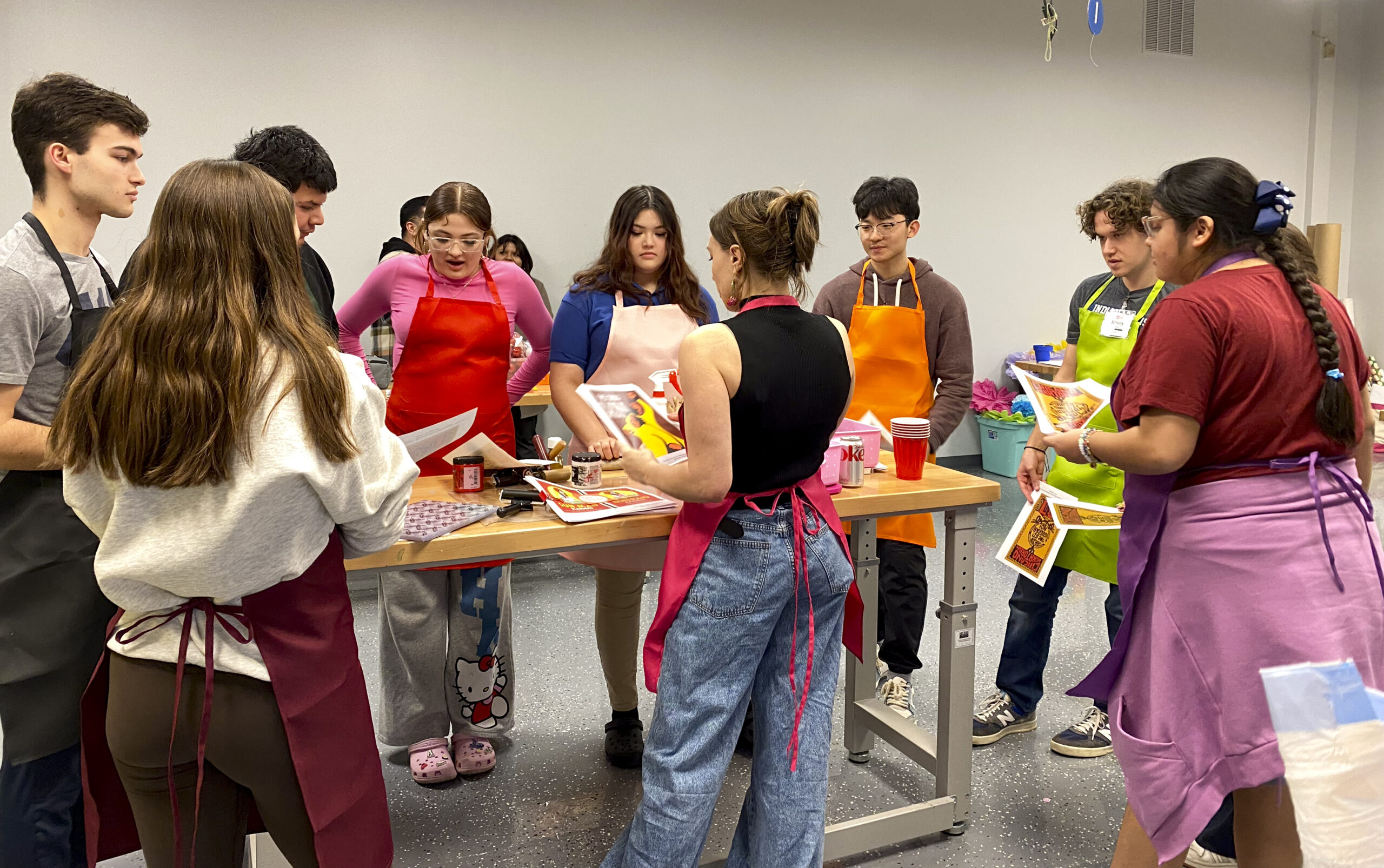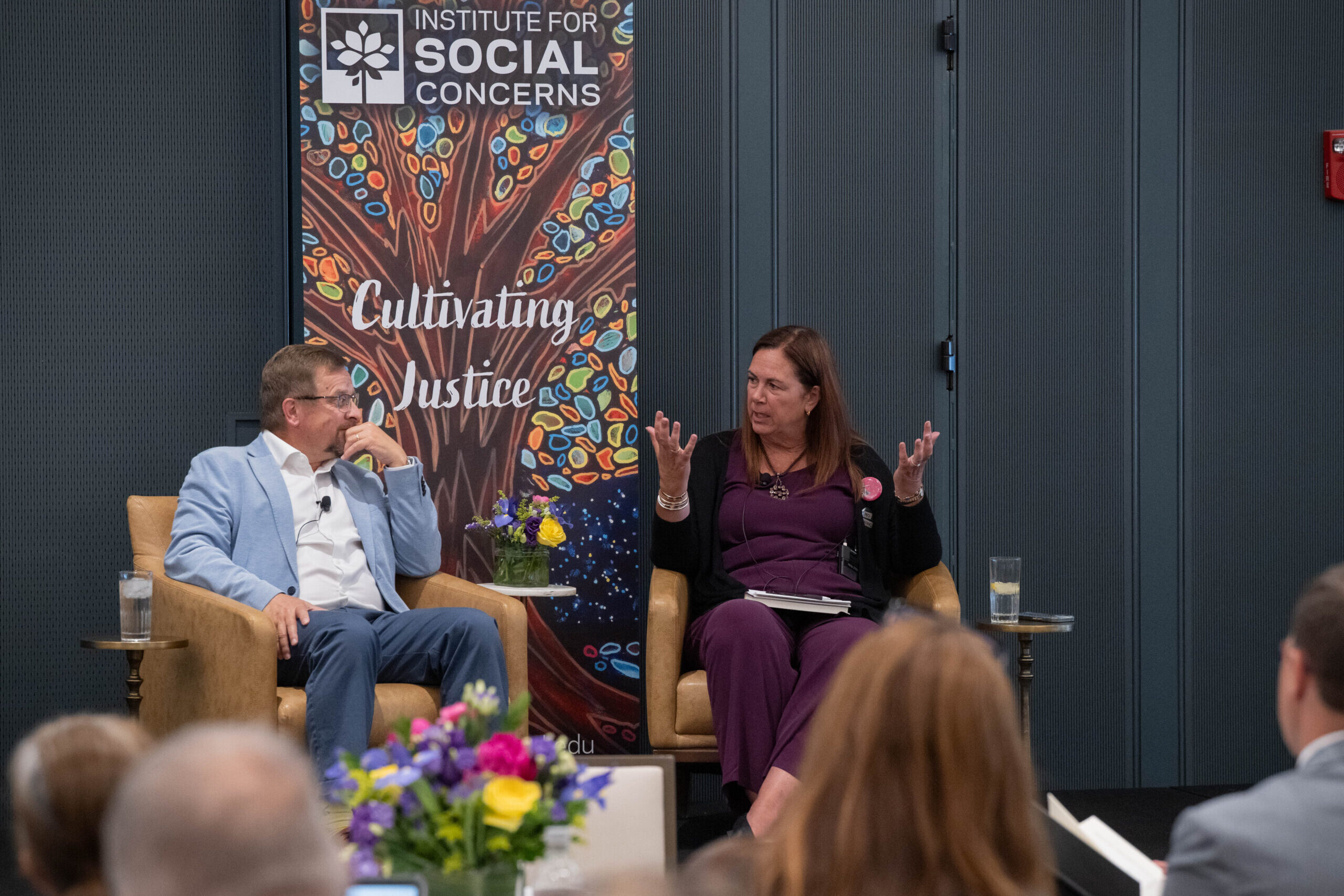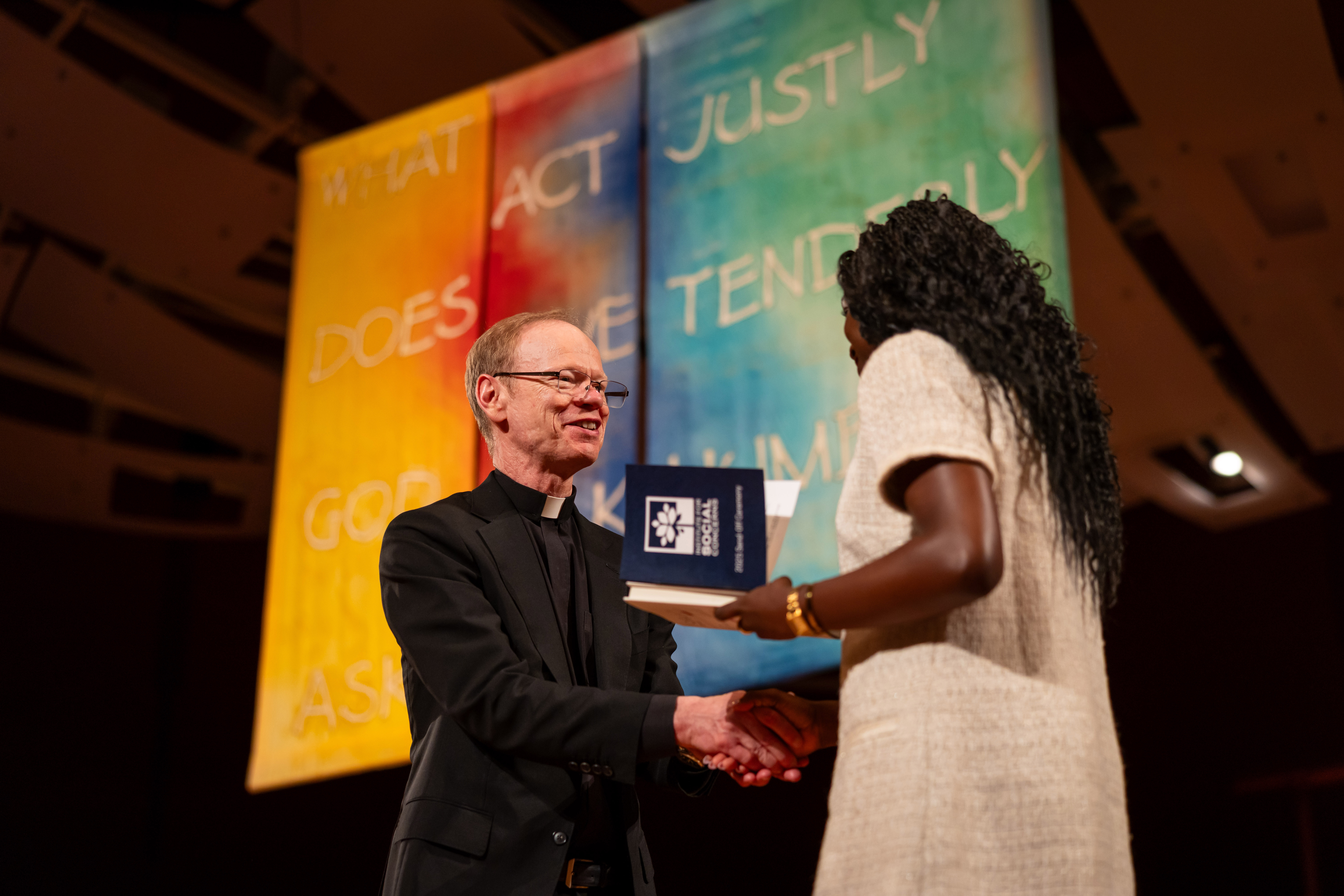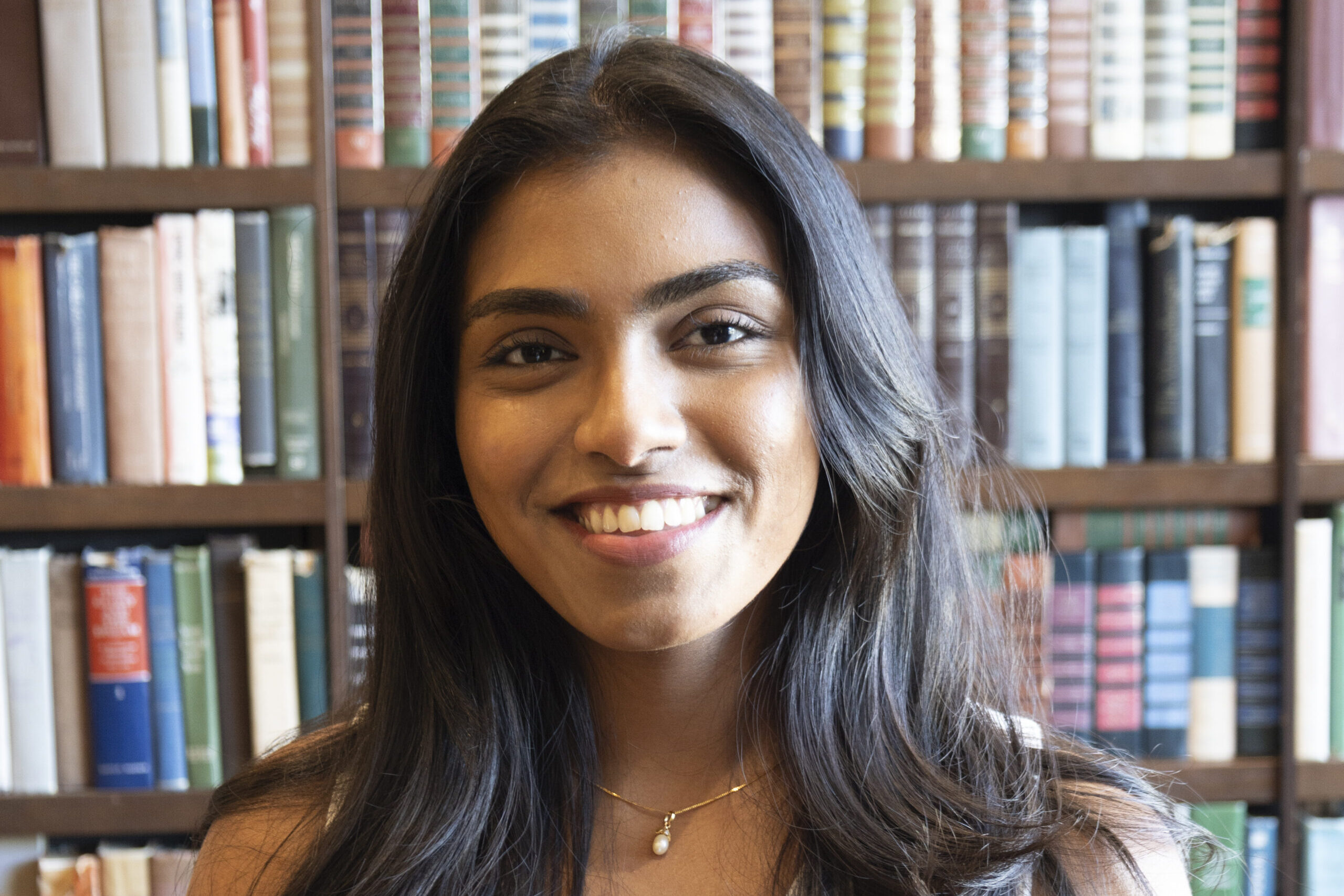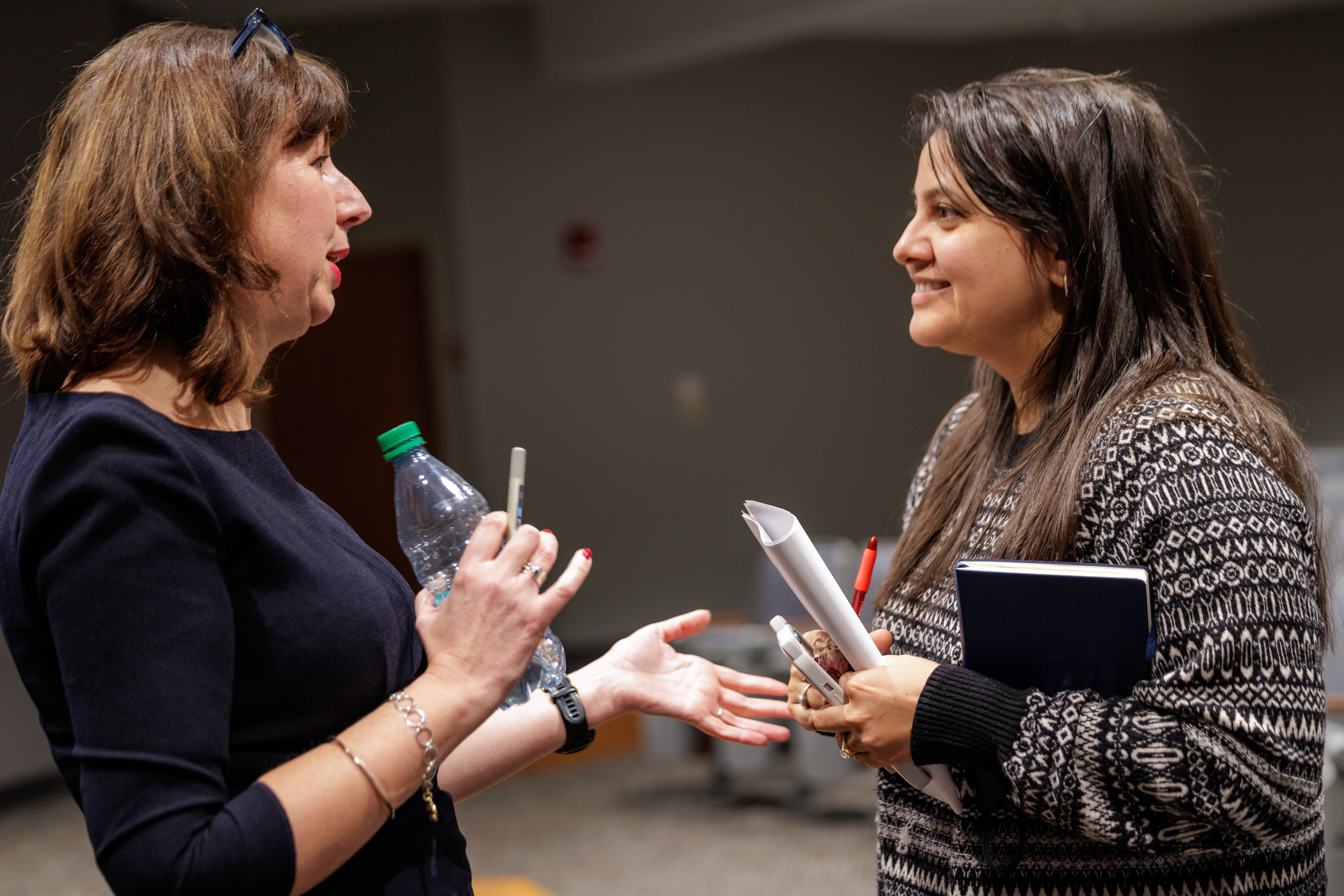Good intentions and good results: Postdoctoral fellow studies how organizations can have positive impact
March 18, 2024
Katie Comeau is a sociologist who thinks about how organizations can be a force for good in the world.
She focuses her research around questions related to what kind of culture churches and other nonprofits need to turn their good intentions into positive impact, especially when operating outside of their own communities.
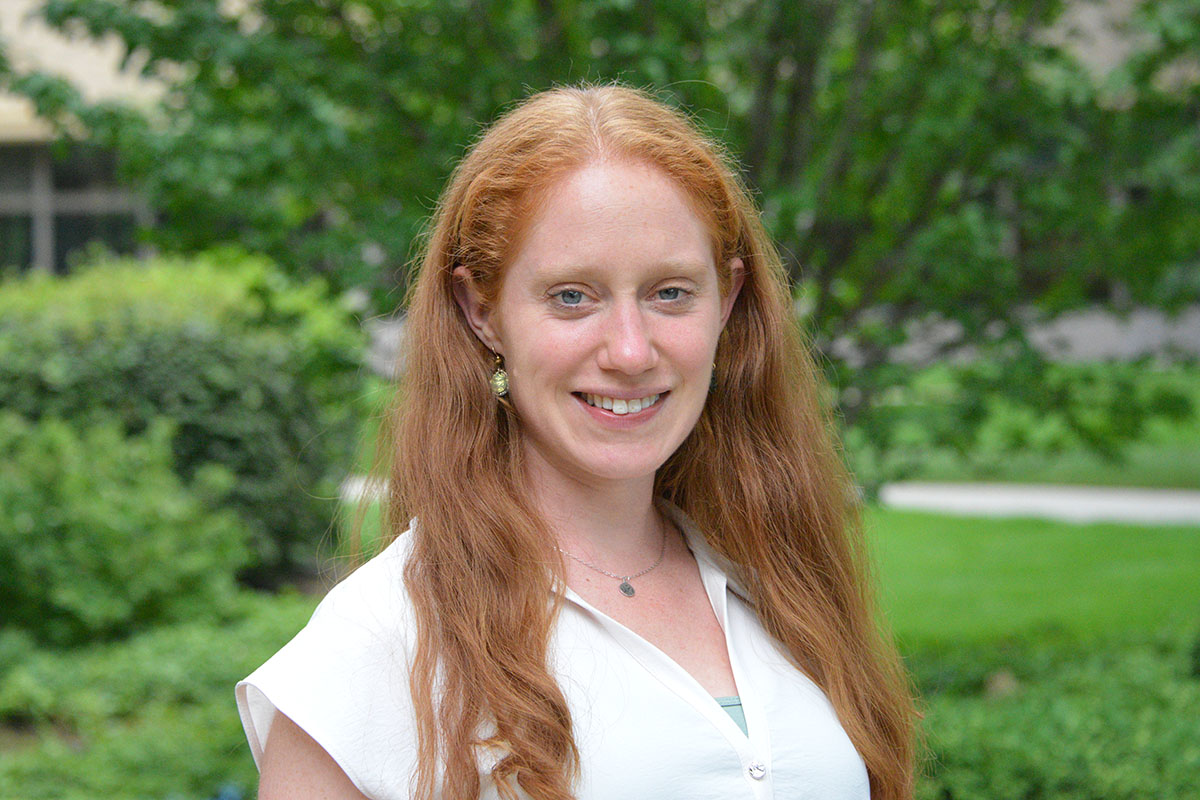
“I’m interested in the organization of doing good work,” said Comeau, a postdoctoral research associate at the Institute for Social Concerns.
Comeau immersed herself in the study of organizations and leadership while pursuing her master’s and Ph.D. in sociology at Notre Dame. Initially, she focused her master’s research on Haiti with the goal of providing more nuance to scholarly critiques that say nongovernmental organizations are counterproductive.
“Haiti is called the ‘Republic of NGOs’ and I wanted to look at how organizations justify their work in a place that already has a lot of organizations doing work there,” she said. “There’s a lot of work to do, but there’s also a lot of scholarly literature that says NGOs are bad, that the inherent power dynamic of white people going into the Global South just doesn’t create anything good. I wanted to provide more nuance to that. Yes, there’s the reinforcing of a power imbalance, but what is the good that can come from those organizations’ work?”
Comeau traveled to Haiti in the summer of 2015 as part of the Institute for Social Concerns’ Common Good Initiative. She had been to Haiti three times as an undergrad to work in an orphanage as part of trips organized through her hometown church. But the trip sponsored by the Institute for Social Concerns was different in that it focused on listening to Haitians in different contexts — from a salt production facility to a men’s prison.
“That truly was an eye-opening experience,” she said. “I’d been to Haiti several times before, but that time we just went and listened to people and heard stories. We learned how complex all of this is.”
Comeau later spent a year in Jamaica, from 2017 to 2018, as a Fulbright Scholar. She studied medical mission groups working there, and analyzed how group dynamics helped or hindered those organizations’ ability to develop relationships with Jamaicans.
She completed her Ph.D. in 2019 and, after a one-year postdoc at Notre Dame, spent two years with the Ormond Center at Duke Divinity School. Continuing to focus on how organizations can do good work, she studied how churches can do good in their communities. She also examined support networks for North American clergy and co-authored the book Caring for Clergy: Understanding a Disconnected Network of Providers.
Last fall, she came back to Notre Dame as a postdoctoral research associate at the Institute for Social Concerns.
One of her current research projects examines how churches are responding to climate change. The project assesses how factors such as geographic location, church size, and denomination affect the way a church helps its community navigate the effects of climate change.
In addition, she applies her expertise in well-being, religion, and organizations to provide mentorship and supervision for the Center’s McNeill Common Good Fellows and their research projects.
First-year students are eligible to apply for the funded fellowships, and those selected are included for the next three years in an interdisciplinary community of scholars eager to live an ethical life of meaning, purpose, and impact. The goal is to nurture those students to be leaders with a commitment to justice and a drive to respond to the concerns of others.
In some ways, the McNeill Fellows are exploring questions on a personal level that Comeau is examining on a larger scale in organizations — understanding their role in making the world a better place and how they can develop the virtues needed to have that impact. “All of the courses, readings, and immersive experiences for the McNeill Fellows are designed to help them grow in their moral formation, and learn more about themselves and the communities they’re working in,” she said.
Comeau said the Institute for Social Concerns’ orientation toward community engagement was one of the draws that brought her back to Notre Dame.
“It mirrors my own research interest with the work of churches in their communities,” she said. “There’s a tension for churches between focusing on their own members and developing resources for their members, but then also knowing that at the end of the day their mission is to make the communities around them better places.”
And the Center’s emphasis on interdisciplinary research has helped her appreciate how art, education, and other fields relate to the work of organizations trying to do good in the world.
“Justice-related issues are so complex,” she said. “Solving those problems requires the expertise of people from many different fields.”
Related Stories
-
Printmaking history—the institute partners with community to celebrate South Bend’s Latino heritage
-
Forming character through friendship—Virtues & Vocations conference promotes human flourishing in professional education
-
Go be justice—Sending off graduates to work for the common good
-
ReSearching for the Common Good: O. Amandhi Mathews
-
Toward a culture of encounter—Lecture series engages Pope Francis, Catholic social tradition

